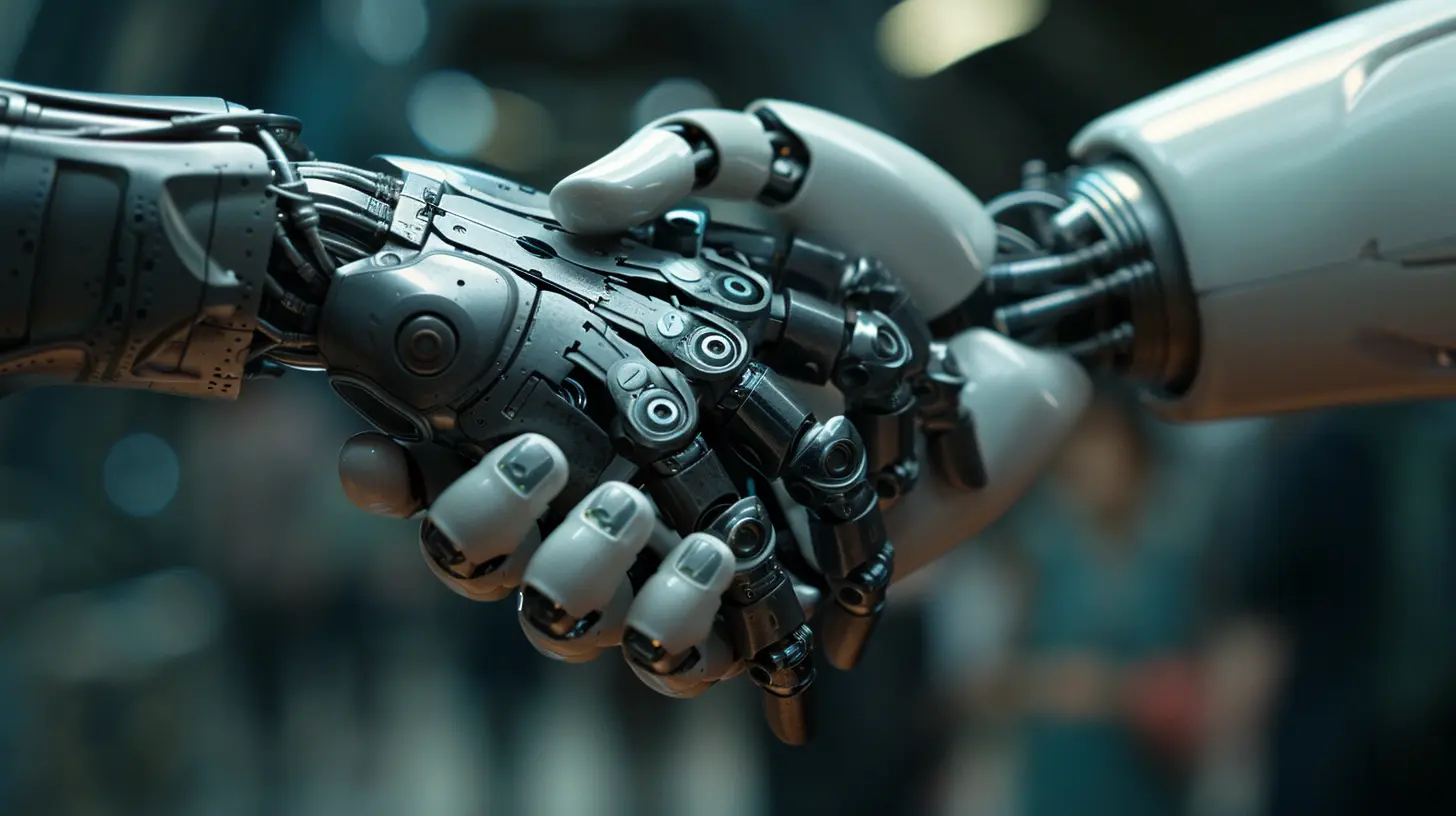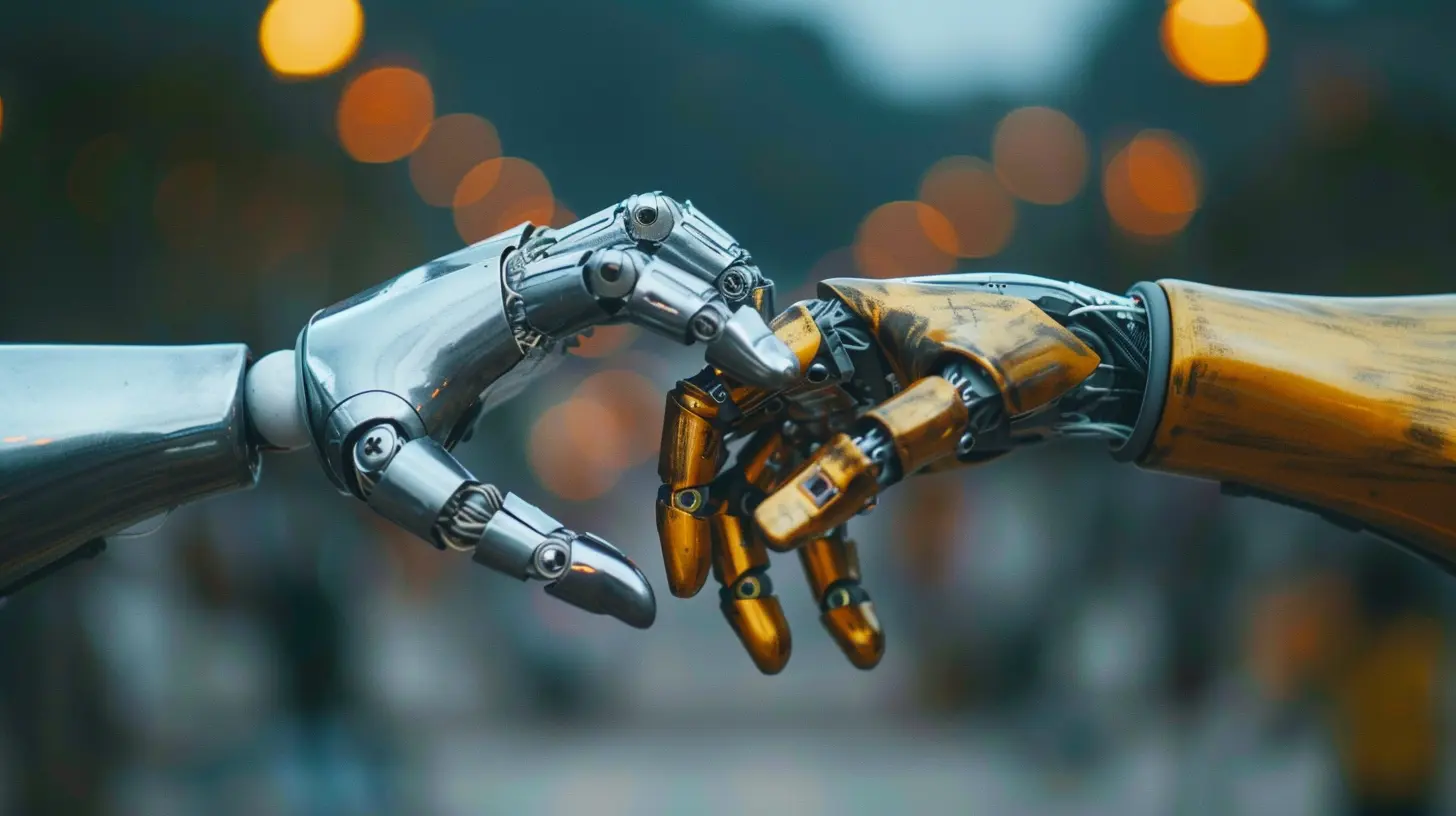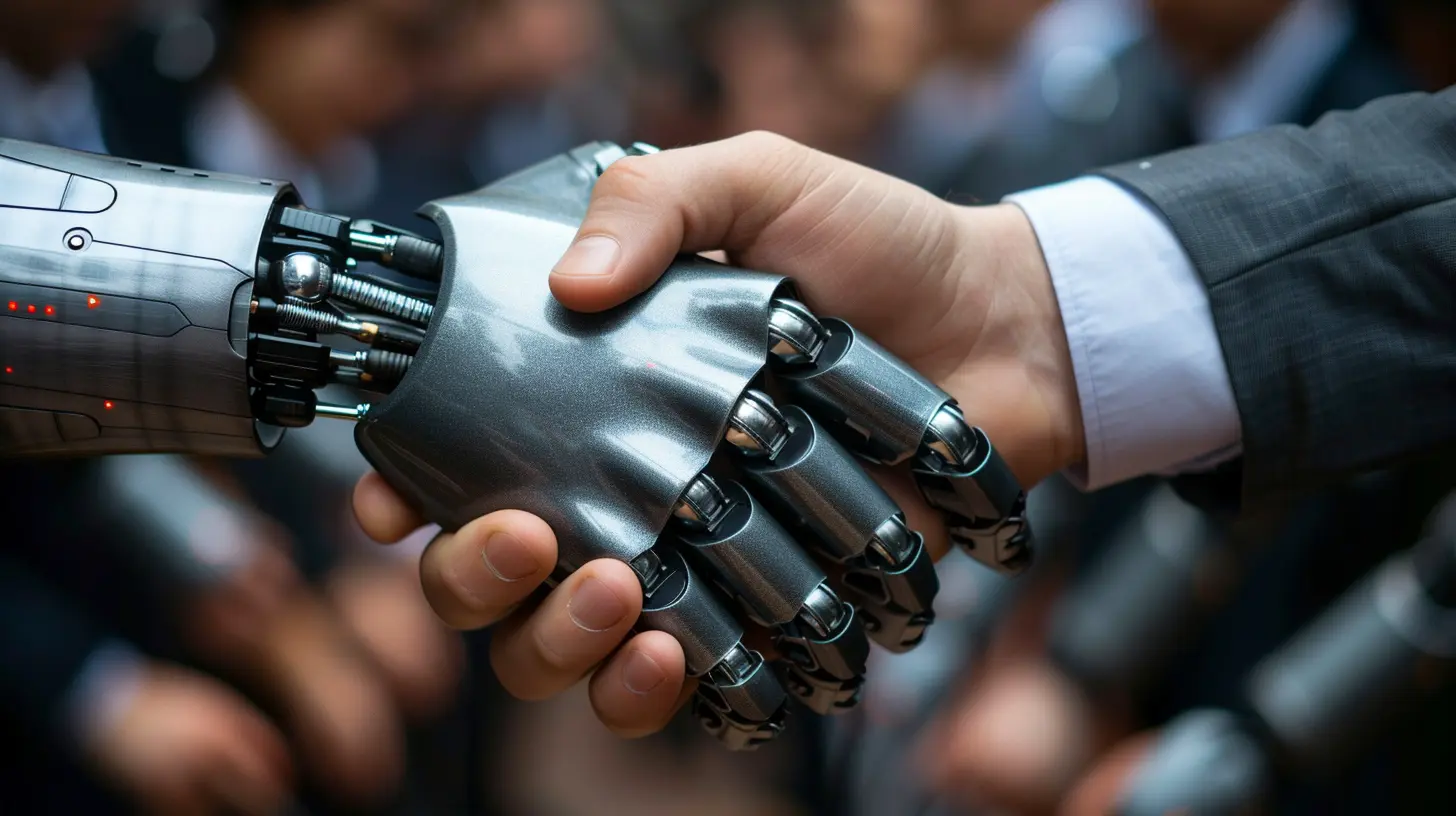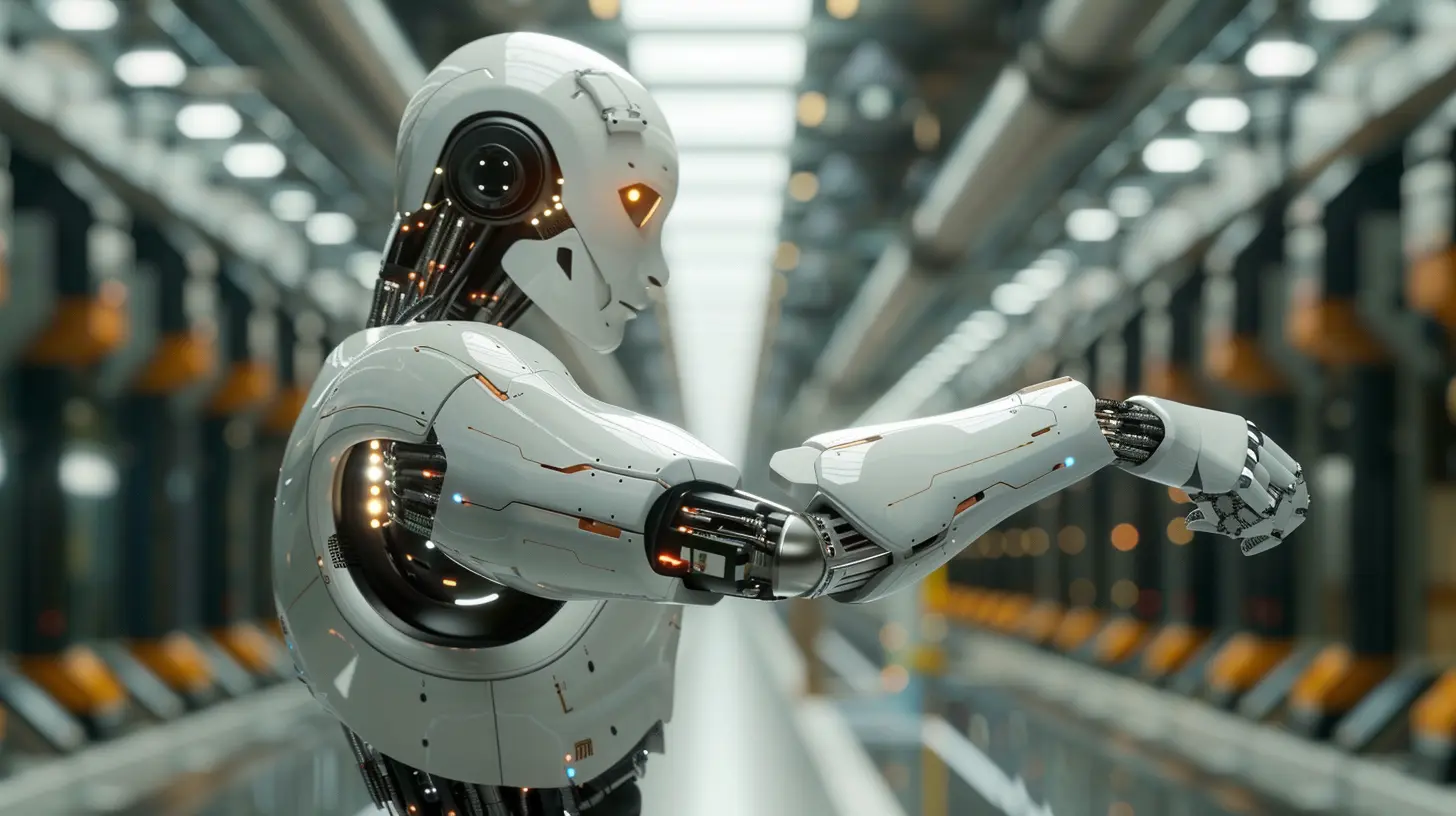Ethical Implications of Automation and Job Displacement
11 July 2025
Automation is no longer a futuristic concept—it’s here, and it’s changing how businesses operate. From self-checkouts at grocery stores to AI-driven chatbots handling customer service, automation is becoming an integral part of industries worldwide. But while automation increases efficiency and productivity, it also raises one major ethical concern: job displacement.
What happens when machines take over human jobs? Is automation really benefiting society, or is it creating more problems than it solves? These are the ethical questions we need to address as technology continues to evolve. 
The Rise of Automation in the Workforce
Technology has always played a role in shaping the job market. From the Industrial Revolution to the rise of computers, new inventions have consistently replaced certain tasks. However, today’s automation isn’t just about machines performing repetitive tasks—it’s about artificial intelligence (AI) making decision-based work more efficient.Industries such as manufacturing, retail, healthcare, and finance have all embraced automation to some degree. Robots assemble cars, AI diagnoses diseases, and algorithms handle stock trading. While businesses benefit from reduced costs and increased productivity, workers often find themselves at risk of being replaced. 
The Ethical Dilemma: Efficiency vs. Employment
1. The Threat to Human Jobs
One of the most pressing ethical concerns is job displacement. When machines can perform tasks faster, cheaper, and with fewer errors than humans, companies have little reason to keep human workers around.Imagine being a cashier for over a decade, only to be replaced by a self-checkout kiosk. Or working in customer service and getting replaced by an intelligent chatbot. The thought itself is unsettling, but it’s a reality many workers face today.
According to studies, automation could replace millions of jobs in the coming years. While new jobs will likely emerge, the transition won’t be easy for those forced out of their roles.
2. The Skills Gap and Income Inequality
As automation advances, the demand for highly skilled workers increases. But what happens to employees whose jobs are taken by machines? Without proper training, many find themselves struggling to adapt.This leads to a growing skills gap. Those with technical expertise in AI, robotics, and programming find new opportunities, while others are left behind. The result? Increased income inequality, where only a small portion of the workforce benefits from automation while many lose their livelihoods.
Should companies be responsible for retraining employees? Or should governments step in with policies to protect workers? These are ethical questions that cannot be ignored.
3. Who Should Be Held Accountable?
When businesses implement automation, they do so to improve efficiency and profits. But should they be held accountable for the workers they replace?Some argue that companies should take ethical responsibility by investing in programs to help displaced workers transition into new roles. Others believe that it's the government's job to create policies that ensure fair employment opportunities.
This debate raises an important point: Technology is advancing faster than regulations can keep up. Without proper oversight, businesses may prioritize profits over people. 
The Moral Responsibility of Businesses
1. Corporate Social Responsibility (CSR) and Automation
Today, most large corporations emphasize Corporate Social Responsibility (CSR). But does CSR extend to how businesses implement automation?Ethically responsible companies should focus on "automation with a conscience." This means implementing automation in a way that considers the well-being of employees. For example:
- Providing Retraining Programs: Companies could offer training in digital skills to help workers transition into new roles.
- Gradual Implementation: Instead of sudden layoffs, businesses can phase automation into the workforce while providing support for displaced employees.
- Job Redesign: Rather than eliminating jobs, automation could be used to enhance human work, making roles more efficient rather than obsolete.
When businesses take a responsible approach, automation can become a tool for progress rather than a source of widespread unemployment. 
Automation and Worker Rights: Ethical Considerations
1. Who Benefits from Automation?
While businesses benefit from automation-driven profits, are workers experiencing the same advantages? If automation leads to higher productivity, should employees also share in these benefits?Ethically speaking, companies should consider redistributing the gains from automation in ways that benefit workers. This could mean:
- Higher wages
- Shorter work hours without pay cuts
- Profit-sharing models
If businesses fail to address this, they risk a world where only business owners and investors thrive, leaving workers in economic distress.
2. Psychological Impact on Workers
Losing a job to automation isn’t just a financial struggle—it’s an emotional one too. People build their identities around their jobs. When automation takes that away, it can lead to anxiety, depression, and a loss of purpose.Companies need to recognize this and provide support systems, whether through counseling services, financial aid during transitions, or career coaching. An ethical approach means recognizing workers as human beings, not just replaceable assets.
Government’s Role in Regulating Automation
1. Implementing Policies for Worker Protection
Governments can play a significant role in ensuring automation benefits society rather than harming it. Some possible regulations include:- Retraining Initiatives: Funding programs that help workers transition into new careers.
- Universal Basic Income (UBI): Providing financial support to those displaced by automation.
- Incentives for Ethical Automation: Encouraging businesses to adopt responsible automation practices through tax benefits or grants.
If governments fail to act, automation could lead to massive unemployment, economic instability, and social unrest.
2. Ethical AI and Automation Standards
Another area of concern is the ethics behind AI-driven automation. If an AI system makes hiring or firing decisions, how do we ensure fairness? Without proper regulations, biases in AI could worsen discrimination in the workplace.Governments must establish ethical guidelines for AI use, ensuring automated decisions are transparent, fair, and accountable.
The Future: Finding a Balance Between Automation and Employment
Automation isn’t inherently bad—it’s how we implement it that matters. Rather than fearing automation, we should aim to strike a balance where technology enhances human work rather than replaces it.By integrating ethical considerations into automation strategies, businesses, governments, and workers can create a future where technology serves as an ally rather than a threat.
So, what’s the solution? A collaborative approach where companies prioritize responsible automation, governments provide protective policies, and workers are given the resources to transition into new opportunities. If done right, automation can lead to a more efficient, innovative, and equitable society.
Final Thoughts
The ethical implications of automation and job displacement can’t be ignored. While businesses seek efficiency and profit, they must also consider the impact on workers. Governments must step in to regulate and protect citizens, ensuring that automation benefits everyone, not just a select few.At the end of the day, automation should empower humanity, not leave people behind. The challenge isn’t stopping automation—it’s finding ways to ensure it enhances rather than eliminates human potential.
What do you think? Should companies be responsible for those they replace? Or is job loss just the price of technological progress? Let’s keep the conversation going.
all images in this post were generated using AI tools
Category:
Business EthicsAuthor:

Susanna Erickson
Discussion
rate this article
2 comments
Linnea Brown
Great insights! Embracing automation can enhance productivity while fostering new opportunities—let’s focus on innovation and reskilling for a brighter future!
November 15, 2025 at 3:43 AM

Susanna Erickson
Thank you! I completely agree—balancing automation with innovation and reskilling is crucial for a sustainable future.
Azriel Hahn
This article highlights crucial issues surrounding automation and job displacement. It’s essential to address the human impact and prioritize support for affected workers, fostering a future where technology enhances rather than replaces our livelihoods.
July 20, 2025 at 4:47 AM

Susanna Erickson
Thank you for your thoughtful comment! I completely agree that prioritizing support for affected workers is vital as we navigate the ethical implications of automation. Together, we can ensure technology serves to enhance our livelihoods rather than diminish them.


